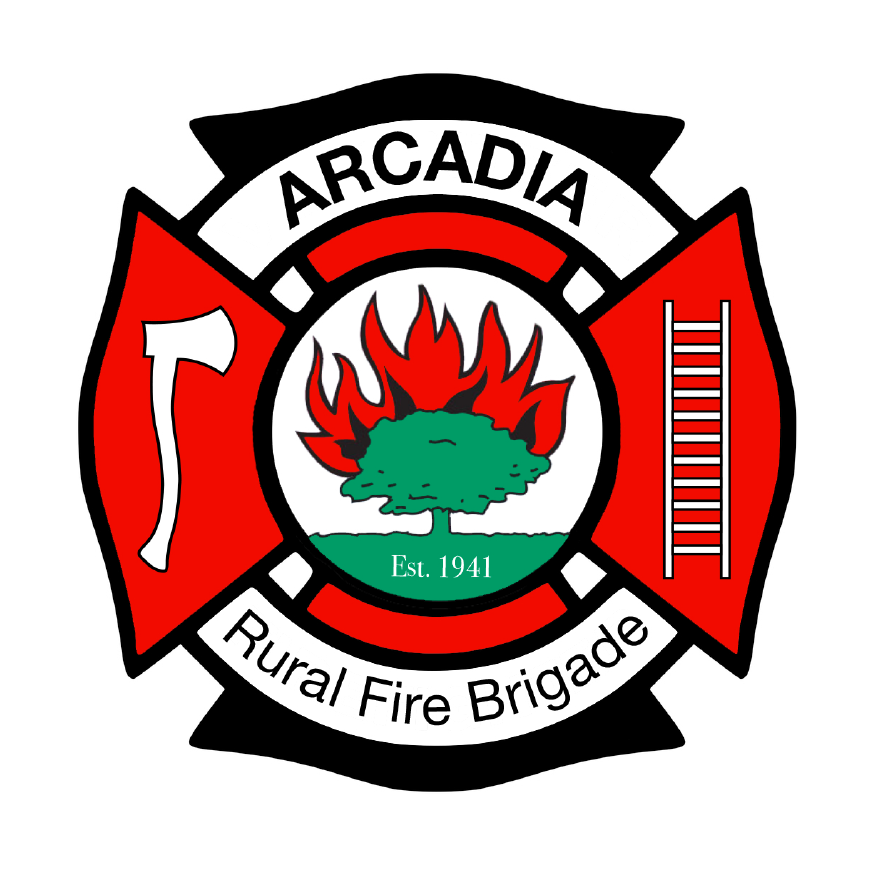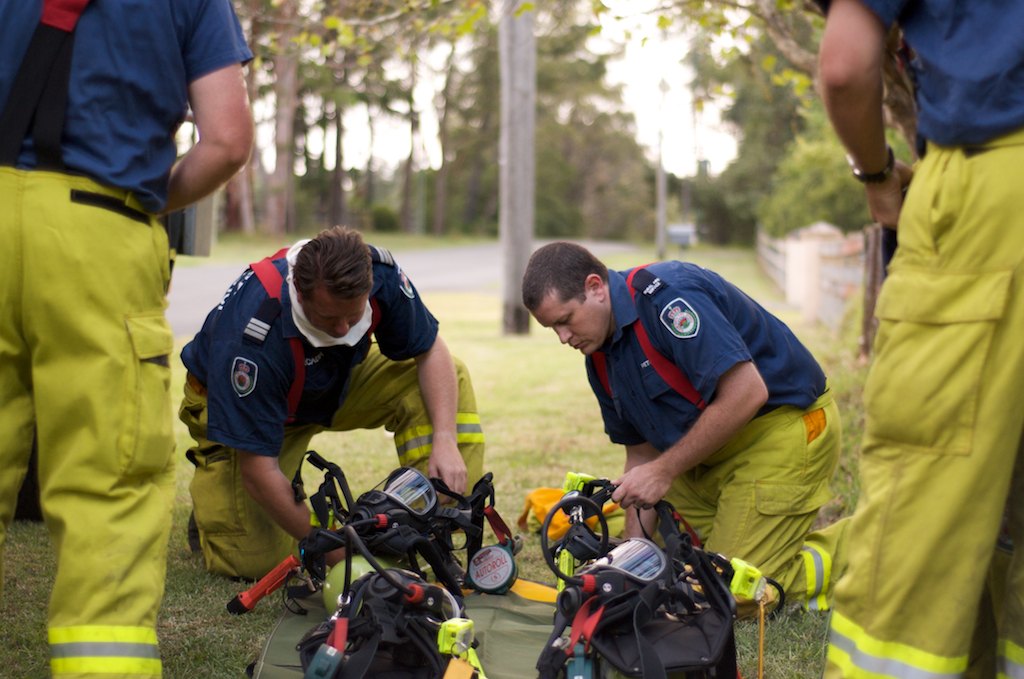Breathing Apparatus (BA) - BA Operators
There are a number of brigades in the Hornsby district that are classified as village brigades and carry breathing apparatus (BA) for members to wear inside of a burning house or some other toxic environment. The training to become a breathing apparatus operator is a physically demanding, mostly practical course, and members must undergo a physical before training commences.
Checking equipment before use
BA operators are deployed at incidents where there is risk of injury from a toxic atmosphere, such as those found at house fires and car accidents. BA operators wear extra protective clothing to provide extra protection from the intense heat found inside at house fires, etc. Breathing apparatus does not make the operators invincible, and there are strict rules and protocols that must be adhered to when it is deployed. The Rural Fire Service will not deploy BA operators unless there is a backup team on site or within eight minutes in case a rescue of members inside the structure is required.
Safety is paramount with the use of BA, and operators working inside a structure do so in pairs with radio contact to the incident controller outside. All operators carry a PDU, or Personal Distress Unit which is a motion sensitive alarm on the belt of the BA set, that is activated manually or if the operator is immobile for twenty seconds. This will alert teams outside to a problem inside the structure and indicate that urgent help is required. Operators entering and leaving a structure must ‘check in’ with the Breathing Apparatus Control Officer (BACO), who monitors how long they have been working and gives the teams their objectives. The amount of air left in the cylinders is checked and recorded before operators can enter a structure and the amount of time they can be inside is determined by that amount.
The operators are required to ‘wear’ or use their breathing apparatus for a certain amount of time every quarter. In addition they must attend at least one of three breathing apparatus exercises every year to maintain their competencies. The training course is undertaken at the district training facility at Westleigh, with the final exam and the subsequent exercises held offsite so members are not familiar with the setting. The Westleigh Training Centre is being upgraded to include a hot cell training facility in addition to the smoke house. This allows BA operators to train in realistic conditions with fire as well as smoke. The equipment used by BA operators is regularly maintained, with weekly checks of the equipment done by members, and a yearly service done by the Fire Control Centre
Training at night



